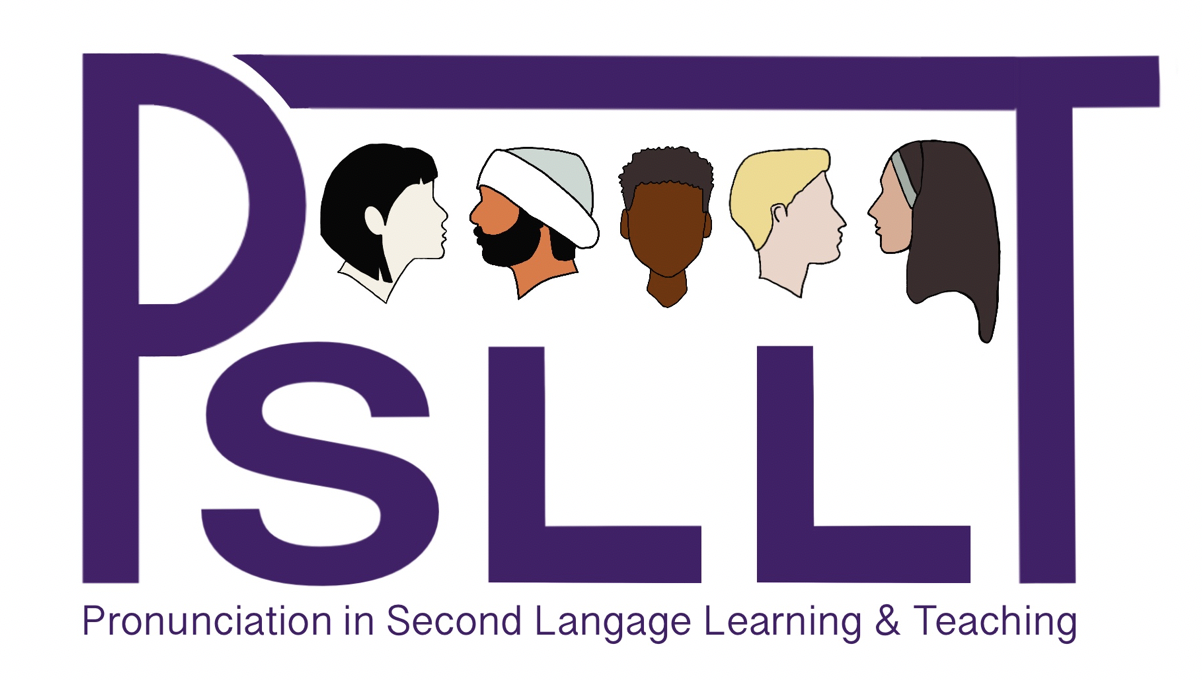Volume 7 • 2016 • L2 Pronunciation and Discourse
Texas A&M University–Commerce, Dallas, Texas, USA (October 15–17, 2015)
Introduction
The Importance of Dedicated Conferences to the Field of Second Language Pronunciation
John Levis, Huong Le, Ivana Lucic, Evan Simpson and Sonca Vo
2016-01-01 Volume 7 • 2016 • L2 Pronunciation and Discourse
Presentation
What’s Hot 2015: Insights From Pronunciation Practitioners
Marsha J. Chan and Donna M. Brinton
2016-01-01 Volume 7 • 2016 • L2 Pronunciation and Discourse
In Other People’s Words: Language Learners’ Imitation of Professional Speech
Janay Crabtree
2016-01-01 Volume 7 • 2016 • L2 Pronunciation and Discourse
A Practitioner’s Guide to English Rhythm: A Return to Confidence
Wayne Dickerson
2016-01-01 Volume 7 • 2016 • L2 Pronunciation and Discourse
Where Does Pronunciation Stand in the 21st Century Foreign Language Classroom? Educators’ and Learners’ Views
FreÌdeÌrique Grim and Jessica L. Sturm
2016-01-01 Volume 7 • 2016 • L2 Pronunciation and Discourse
The Importance of Aspirated Initial Stops in English as a Lingua Franca
Mara Haslam and Elisabeth Zetterholm
2016-01-01 Volume 7 • 2016 • L2 Pronunciation and Discourse
The Effect of Metacognitive Strategy Instruction on L2 Learner Beliefs and Listening Skills
Jennifer A. Lacroix, Marnie Reed and Allen G. Harbaugh
2016-01-01 Volume 7 • 2016 • L2 Pronunciation and Discourse
Is Phonemic Training Using Nonsense or Real Words More Effective?
Ron I. Thomson and Tracey M. Derwing
2016-01-01 Volume 7 • 2016 • L2 Pronunciation and Discourse
The Influence of Various Visual Input Types on L2 Learners’ Memory for Phonological Forms of Newly-Learned Words
Kristie Durham, Rachel Hayes-Harb, Shannon Barrios and Catherine E. Showalter
2016-01-01 Volume 7 • 2016 • L2 Pronunciation and Discourse
Brazilian English X Brazilian Portuguese: A Dynamic Approach for the Analysis of Diphthongs in Forensic Contexts
Maria Lucia de Castro Gomes
2016-01-01 Volume 7 • 2016 • L2 Pronunciation and Discourse
Language Proficiency Ratings: Human vs. Machine
David O. Johnson, Okim Kang and Romy Ghanem
2016-01-01 Volume 7 • 2016 • L2 Pronunciation and Discourse
The Acoustic Phonetics of Voiced Th in Seven Varieties of L2- Accented English: Focus on Intelligibility
Ettien Koffi
2016-01-01 Volume 7 • 2016 • L2 Pronunciation and Discourse
An Exploration of Teaching Intonation Using a Ted Talk
Alison McGregor, Beth Zielinski, Colleen Meyers and Marnie Reed
2016-01-01 Volume 7 • 2016 • L2 Pronunciation and Discourse
Transforming Any Text Into an Individualized Segmental Exercise via Relateworldwide’s Pronunciation Highlighter
Monica Richards
2016-01-01 Volume 7 • 2016 • L2 Pronunciation and Discourse
What Makes a Bostonian Sound Bostonian and a Texan Sound Texan?
Jim Talley
2016-01-01 Volume 7 • 2016 • L2 Pronunciation and Discourse
Using Google Web Speech as a Springboard for Identifying Personal Pronunciation Problems
Lara Wallace
2016-01-01 Volume 7 • 2016 • L2 Pronunciation and Discourse
Mimic Video: A Cinematic Method for L2 Pronunciation
Donald White, Jason Chan, Peggy Mok and Peggy Lie
2016-01-01 Volume 7 • 2016 • L2 Pronunciation and Discourse
Teaching Tips
The Stress Stretch for Prosodic Improvement in English Words and Phrases
Marsha J. Chan
2016-01-01 Volume 7 • 2016 • L2 Pronunciation and Discourse
French Pronunciation and Vowel Tension
Viviane Ruellot
2016-01-01 Volume 7 • 2016 • L2 Pronunciation and Discourse
Also a part of:
Collection: The Best of Pronunciation Teaching Tips from 2016–2022
Intelligibility: Five Winning Activities for Speak Test Preparation
Lara Wallace and Edna F. Lima
2016-01-01 Volume 7 • 2016 • L2 Pronunciation and Discourse
Learning L2 Pronunciation While Studying Vocabulary
Nadine de Moras
2016-01-01 Volume 7 • 2016 • L2 Pronunciation and Discourse
Peer-Tutoring Pronunciation Contrasts: A Fun, Effective Classroom Procedure
Lynn Henrichsen
2016-01-01 Volume 7 • 2016 • L2 Pronunciation and Discourse
Also a part of:
Collection: The Best of Pronunciation Teaching Tips from 2016–2022
Intonation Bridging Activities: Meaningful Practice for Final Intonation
Greta Muller Levis and John Levis
2016-01-01 Volume 7 • 2016 • L2 Pronunciation and Discourse
Also a part of:
Collection: The Best of Pronunciation Teaching Tips from 2016–2022
Teaching Talk, Tell-Backs, and a Declarative to Procedural Knowledge Interface
Marnie Reed
2016-01-01 Volume 7 • 2016 • L2 Pronunciation and Discourse
Also a part of:
Collection: The Best of Pronunciation Teaching Tips from 2016–2022
Providing Individualized Homework and Accountability for Itas via Internet Resources
Monica Richards
2016-01-01 Volume 7 • 2016 • L2 Pronunciation and Discourse
Reviews
Corpus of Misunderstandings from the Asian Corpus of English [Review]
Corry Caromawati
2016-01-01 Volume 7 • 2016 • L2 Pronunciation and Discourse
The handbook of English pronunciation [Review]
YunDeok Choi
2016-01-01 Volume 7 • 2016 • L2 Pronunciation and Discourse
English File Pronunciation App [Review]
Joseph Geluso
2016-01-01 Volume 7 • 2016 • L2 Pronunciation and Discourse
Pronunciation in EFL instruction: A research-based approach [Review]
Elizabeth Lee
2016-01-01 Volume 7 • 2016 • L2 Pronunciation and Discourse
Virtual Talking Head [Review]
Ivana Lucic
2016-01-01 Volume 7 • 2016 • L2 Pronunciation and Discourse
eEnglish by Pronunciation Power [Review]
Phuong Nguyen
2016-01-01 Volume 7 • 2016 • L2 Pronunciation and Discourse
Pronunciation fundamentals: Evidence-based perspectives for L2 teaching and research [Review]
Sonca Vo
2016-01-01 Volume 7 • 2016 • L2 Pronunciation and Discourse
